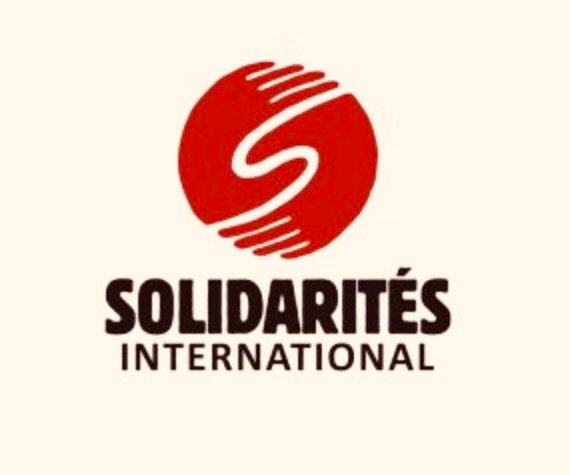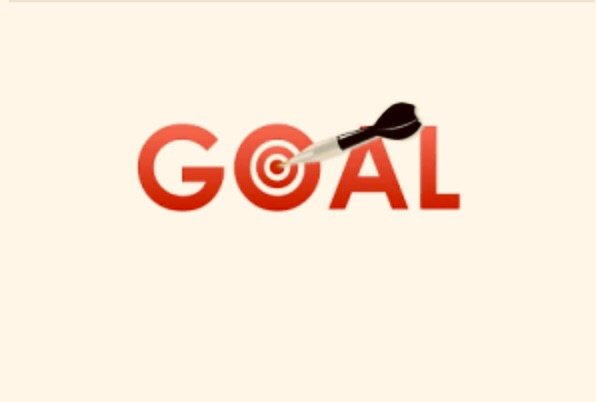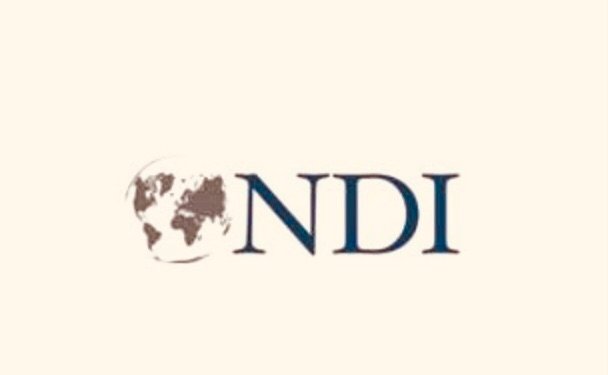The International Rescue Committee (IRC) responds to the world’s worst humanitarian crises, helping to restore health, safety, education, economic wellbeing, and power to people devastated by conflict and disaster. Founded in 1933 at the call of Albert Einstein, the IRC is one of the world’s largest international humanitarian non-governmental organizations (INGO), at work in more than 40 countries and more than 25 U.S. cities helping people to survive, reclaim control of their future and strengthen their communities. A force for humanity, IRC employees delivers lasting impact by restoring safety, dignity and hope to millions. If you’re a solutions-driven, passionate change-maker, come join us in positively impacting the lives of millions of people world-wide for a better future.
Clashes between the Sudanese Armed Forces (SAF) and the Rapid Support Forces (RSF) that erupted on 15 April 2023 continue in spite of different attempts for ceasefire agreements/announcements made by the two conflicting parries. Clashes between the Sudan Armed Forces (SAF) and the Rapid Support Forces (RSF) have continued for almost five consecutive months, especially in and around Khartoum and in the Darfur’s
The violence broke out because of rising tensions between Sudan’s most powerful generals , who jointly staged a coup d’état in October 2021. In 2019, the RSF, which comprised former militias from the Darfur war (from 2003–2020), joined forces with the Sudanese army to overthrow Sudan’s long-time leader, Omar al-Bashir, leading to a civilian military power-sharing government. In 2021, the military and the RSF used the pretext of political wrangling between civilian camps to seize full power (ICG 23/01/2023; Reuters 14/04/2023). Subsequent negotiations on how to integrate the RSF into the SAF eventually led to clashes. The main reason behind the clashes was the lack of agreement on who would be exercising ultimate control over the combatants.
As the conflict between the Sudanese Armed Forces (SAF) and the Rapid Support Forces (RSF) continues across the country, more people are being displaced and humanitarian needs are increasing daily. To date, more than 4 million people have been displaced inside and outside the country due to the conflict that erupted on 15 April. Nearly 3.3 million people have been displaced internally as of 8 August, according to the International Organization for Migration Displacement Tracking Matrix (IOM DTM). People have been displaced across all 18 states. The majority are in River Nile, Northern, North Darfur and White Nile states. About 71 per cent of internally displaced people (IDPs) are originally from Khartoum. While the conflict has affected health services in states directly impacted by the fighting, states that have not witnessed active conflict are also suffering from the lack of supplies, especially as newly displaced people are arriving from conflict areas. Currently, an estimated 11 million people in Sudan need urgent health assistance, including about 4 million children and pregnant and breastfeeding women who are acutely malnourished, and more than 100,000 children under the age of five with severe acute malnutrition (SAM) with medical complications who need specialized care at stabilization centres. Hospitals, ambulances, supplies, warehouses, health workers and patients have been attacked in Sudan.
Summary statement of responsibilities
As a member of the Country Program Senior Management Team, the Deputy Director Finance provides financial leadership and management necessary to ensure that the country program has the appropriate financial infrastructure and systems in place to support the strategic vision and mission of the organization. S/he will contribute to the development of the country programs strategic and operational plans and be accountable for ensuring and monitoring delivery against the financial plans through targeted and comprehensive financial analytical review. The Deputy Director Finance is responsible for the overall policy and management for the financial and accounting management of the Country Program. Emphasis will be placed on financial management policies, practices and systems that are compliant with local laws and US as well as adhering to donor requirements but are also conducive to effective implementation of country programs.
As Deputy Director Finance, s/he will have responsibility for all aspects of strategic and operational finance in the country program, acting as the principal finance business partner to the Senior Management team and Country Director, Regional staff as well as conforming to IRCs financial control environment and CFO standards and objectives. Based in Gederif the Deputy Director Finance will have dual reporting to the Country Director and the East Africa Regional Finance Director.
Specific responsibilities
Strategic Planning & Analysis:
Provides financial information which supports the Country Director and SMT in making business decisions in line with IRC, Regional & Country Program strategies
• Provides strategic analysis on the overall financial health of the country program to the CD and SMT
• Contributes and provides feedback to the development of Country Programs Strategic Annual Plan
Controllership:
• Ensures that all in-country practices are in compliance with IRC and donor policies and procedures
• Establishes in-country finance procedures to supplement global policies as needed
• Closely monitors financial activities and advises the Country Director on financial performance of the office, issues with internal controls or financial management
• Ensures monthly balance sheet reconciliations are completed on a timely basis
• Manages the finance department activities and schedules to meet the financial reporting requirements and deadlines specified by headquarters and donors
• Identifies requirements for and develops reporting formats to aid in the management of country operations and grant expenditures
• Directs the preparation of and approves all donor financial reports in respect to accounting, legal and contractual requirements and ensures the review of such reports by the Country Director and Regional Finance Director prior to submission in line with IRC policy and standard procedures
• Ensures in-country internal control reviews of operations are regularly undertaken.
• Facilitates external, internal, donor or government audits
• Oversees the protection of the country’s assets (cash, inventory, fixed assets) through the enforcement of internal control policies and procedures
• Maintains current knowledge of local government requirements related to finance and complies with tax and other legal requirements
• Is the principal liaison with IRC HQ on all finance, accounting, grant budget management, and cash management
Treasury
• Supervises all country program bank relations and bank account activities including negotiation of fees, interest and currency exchange rates
• Oversees the review and approval of all monthly bank account and cash reconciliations
• Maintain on current basis accurate forecasts of cash requirements for meeting future spending, including commitments which obligate IRC to future spending
• Ensures that appropriate balances are maintained to facilitate grant implementation and cash held in headquarters in drawn regularly
• Ensures the development and implementation of a plan to minimize the country’s foreign exchange exposure to currency gains and losses
• Supervises the collection of contractual and other receivables
Budget/Forecast
• Oversees the preparation and revision of grant proposal budgets; supports programs with guidance on costing and inputs in creating budgets for submission
• Prepares and maintains the country’s annual operating budget; ensures cost coverage for in-country operating costs and updates the operating budget regularly
• Presents and facilitates the review of actual to budget expenditures with the Country Director and program managers
Integra ERP implementation support
• As required and assigned, support the country program in implementation of Integra, including effectively leading pre-deployment activities to ensure a seamless transition of systems.
Staff Performance Management, Learning & Development
• Establishes a finance department roles and responsibilities matrix; staff job descriptions are current; recruits and maintains qualified staff to perform finance functions
• Hire, supervise, and build the capacity of team members in relevant technical and management competencies.
• Develop and implement remote management capacity building approaches to build the strengths the teams in Syria.
• Ensures comprehensive and constructive performance reviews are completed annually; career planning and development plans are in place for all finance staff
• Coach, train, supervise and mentor direct-report staff, including communicating clear expectations, setting annual performance objectives, providing regular and timely positive and constructive performance feedback, and providing documented semi-annual performance reviews.
• Oversees finance training and technical support to non-finance staff for skills improvement in the areas of accounting, reporting and internal control
• Ensure that all finance staff understand and apply IRC’s partnership principles, and that finance staff with significant partnership responsibilities are guided by IRC’s partnership skills and approaches.
• Maintain open and professional relations with team members, promoting a strong team spirit and providing oversight and guidance to enable staff to successfully perform in their positions.
• Approve and manage time, attendance and leave requests to ensure adequate departmental coverage; ensure monthly, accurate timesheet submission and carry out probationary reviews.
• Hold high-quality meetings with each direct report on a regular and predictable basis, minimally on a monthly basis.
• Provide a measurable development plan including on-the-job learning with the aim of strengthening technical capacity, exchanging knowledge within the team and providing guidance on career paths.
• As required, identify staff performance issues and work with Human Resources to document and address these in accordance with the National Staff Employment Policies.
• Maintain open and professional relations with team members, promoting a strong team spirit and providing oversight and guidance to enable staff to successfully perform in their positions.
• Promote and monitor staff care and well-being. Model healthy work-life balance practices. Support appropriate interventions in response to identified staff care needs of both national and international staff.
• Look for opportunities to support staff in their career growth, where appropriate. As part of succession plan and nationalization goals, identify, train and develop capability and capacity of national staff to successfully transition role and responsibilities, by the end of assignment.
Qualifications
• Bachelor’s degree in accounting, Business Administration, Commerce or Finance required; recognized professional certificate in accounting such as CPA, or a Master’s degree in Accounting preferred
• Extensive experience working in development or humanitarian response, including at least five years of experience living and working in the relevant field in emergency or conflict-affected settings and transitioning countries
• Minimum of 8-10 years of managerial experience in finance
• Requires extensive experience in working with computerized accounting systems, standard spreadsheet and database programs (SUN System and Integra)
• Good written and verbal skills in the English language while Arabic is desired
• Must be comfortable in being a proactive member of the senior management team. Must have a proven track-record of proactively identifying and communicating potential problems and proposing solutions
• Must be able to function effectively in a complex work environment, setting appropriate priorities and manage competing priorities and pressure
• Ability to carry out responsibilities independently with minimal technical support
• Must have excellent interpersonal communication skills and professional patience and be able to interact, partner and thrive in a diverse environment
• Committed to staff training and development and effective at facilitation
Demonstrated Skills and Competencies:
• A commitment to IRC’s mission, vision, values and IRC Way – Professional Code of Conduct.
• Credible written, presentation and verbal communication skills; ability to convey information effectively and solid experience providing training and staff development
• Validated sense of professional discretion, integrity, and ability to handle complex situations diplomatically and to effective resolution.
• Excellent management and interpersonal skills and a solid ability to promote harmonious/cohesive teamwork, in a cross-cultural context.
• Validated ability to plan long-term, organize priorities and work under administrative and programmatic pressures with detail orientation and professional patience.
• Highly collaborative and resourceful; ability to establish positive working relationships with senior level management and all other partners to maximize cooperation and productivity.
• Curiosity, a desire to continually learn and develop is a must.
• Analytical ability in creating effective solutions to complex matters while adhering to labor laws and internal policies.
Key Working Relationships:
Position Reports to: Sudan Country Director and EA Regional Finance Director
Position directly supervises: Deputy Finance Controller, Budget and Finance Manager
Key Internal Contacts:
Country Program: Senior Management Team members across different departments such as HR, Programs, Operations, Safety and Security, etc.
Regional Finance Director and Regional Management Team members
HQ: Global Finance Team
The work environment:
The DDF will be based in Gederif temporarily, in Sudan, and will travel throughout the country to field program locations (35%). All Sudan locations are security phase 4 (RED) so the DDF will be expected to respect the various security protocols in place in country. Phase 4 requires clear contingency planning in place with staff prepared should hibernation or evacuation be called for. The candidate must be prepared to work in insecure environments. This is an unaccompanied position.
Housing:
Individual housing unaccompanied. All IRC sites have electricity and internet although some interruptions can be experienced. Food is the individual’s responsibility.
Standard of Professional Conduct:
The IRC and the IRC workers must adhere to the values and principles outlined in the IRC Way – our Code of Conduct. These are Integrity, Service, Accountability, and Equality.
Commitment to Gender, Equality, Diversity, and Inclusion:
The IRC is committed to creating a diverse, inclusive, respectful, and safe work environment where all persons are treated fairly, with dignity and respect. The IRC expressly prohibits and will not tolerate discrimination, harassment, retaliation, or bullying of the IRC persons in any work setting. We aim to increase the representation of women, people that are from country and communities we serve, and people who identify as races and ethnicities that are under-represented in global power structures.









